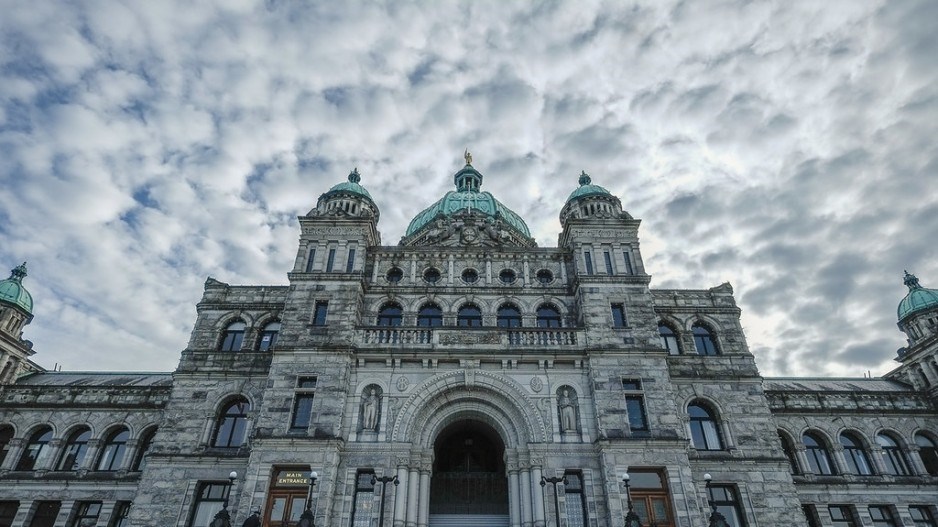If B.C.’s Conservative and United parties intend to hold merger talks, as both leaders have recently said they are open to doing, they better get moving fast before the window of opportunity shuts for good for the 2024 provincial election.
The two parties face a brief moment next month where a partnership or merger could be a practical reality. After that, the chances of a deal drop off a cliff.
The key issue facing both United and Conservative members is how many new candidates their party leaders announce between now and, say, late January.
Each one makes it harder to pull off a merger or a non-compete deal, as none of the candidates from either party want to give up the nominations they’ve already spent significant time and money obtaining.
In some ridings, that would come down to Conservative candidates leading in the polls being turfed in a merger, or incumbent BC United MLAs choosing to step down and make way for a unified candidate. Neither is a simple task.
On Saturday, United Leader Kevin Falcon announced Jackie Lee as his candidate for Richmond-Steveston. The BC Conservatives already have a candidate in the riding in Michelle Mollineaux. If the two parties merged, or agreed to co-operate, who steps down to avoid dividing the centre-right vote and re-electing NDP incumbent Kelly Greene?
It’s the same scenario in the Peace Region, where Conservatives are running farmer Jordan Kealy and businessman Larry Neufeld against United incumbents Dan Davies and Mike Bernier, respectively. Would the multi-term United MLAs exit politics to make way for new candidates that polls show are more popular in the region?
Unlikely.
And what would the Conservative candidates have to gain by resigning?
Those are the types of thorny questions that get more difficult by the day for the two parties. The closer they get to 93 candidates each, the more unlikely a deal becomes.
Fuelling the difficulty is the intense personal dislike between Falcon and BC Conservative leader John Rustad. Getting the two into a room together will be difficult.
Falcon fired Rustad in 2022 over what he characterized as comments that denied climate science. Since then, Rustad has mocked him openly as polls show BC Conservatives leapfrogging BC United in voter approval.
Realistically, some sort of big player with major sway over both leaders would be required to get merger talks going.
That could be someone from the business community, if a person with deep pockets and a long political pedigree wanted to roll up his or her sleeves and dive into the mud. They’d have to act as an emissary for others, threatening to withhold money and support from big business until Falcon and Rustad hash out an agreement.
Despite grumblings of discontent here and there from the business community, there’s no indication such a person is materializing any time soon.
In the past, the coalition of social moderates and fiscal conservatives that comprised the BC Liberals was kept in check by the occasional browbeating by federal Conservative cabinet ministers. One or two would roll into town with their national cache and silence the provincial squabbling by threatening to effectively blacklist certain people from the national political landscape if they didn’t fall in line.
There is no federal Conservative government anymore. The only person with the mojo required to bring Rustad and Falcon to heel, federal Conservative Leader Pierre Poilievre, has made it clear through intermediaries he’s not willing to do so while he focuses on trying to defeat Justin Trudeau.
It could be many years before a potential federal Conservative government turns its attention to influencing B.C. politics.
The other way to force merger talks around two intransigent leaders would be if their caucuses did it for them.
That won’t fly on the Conservative side, because MLA Bruce Banman was already unpopular in United circles before he defected in September.
The BC United caucus, however, is a different story. Several MLAs are more aligned with Conservative positions than Falcon’s United direction. Could they lead a challenge to Falcon’s leadership, forcing him out to kick-start a merger? Could they cross the floor, opening the floodgates for others and necessitating talks? If that happened, who would be the new unified party leader?
Both scenarios would require MLAs willing to throw their political careers into short-term chaos for the hopes of long-term victory. The list of those brave enough to do so is short indeed. And they’d have to act fast.
These are some of the questions MLAs and party strategists from both sides will likely be mulling over during their Christmas break. But the window to act is narrow.
More likely, these two leaders and their respective teams will maintain their standoff all the way to the polls in October. For better, or for worse, for both of them.
Rob Shaw has spent more than 15 years covering B.C. politics, now reporting for CHEK News and writing for Glacier Media. He is the co-author of the national bestselling book A Matter of Confidence, host of the weekly podcast Political Capital, and a regular guest on CBC Radio. [email protected]



